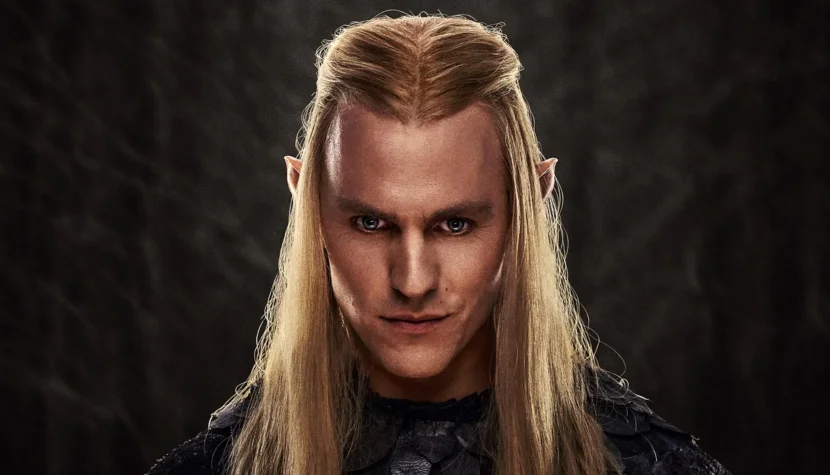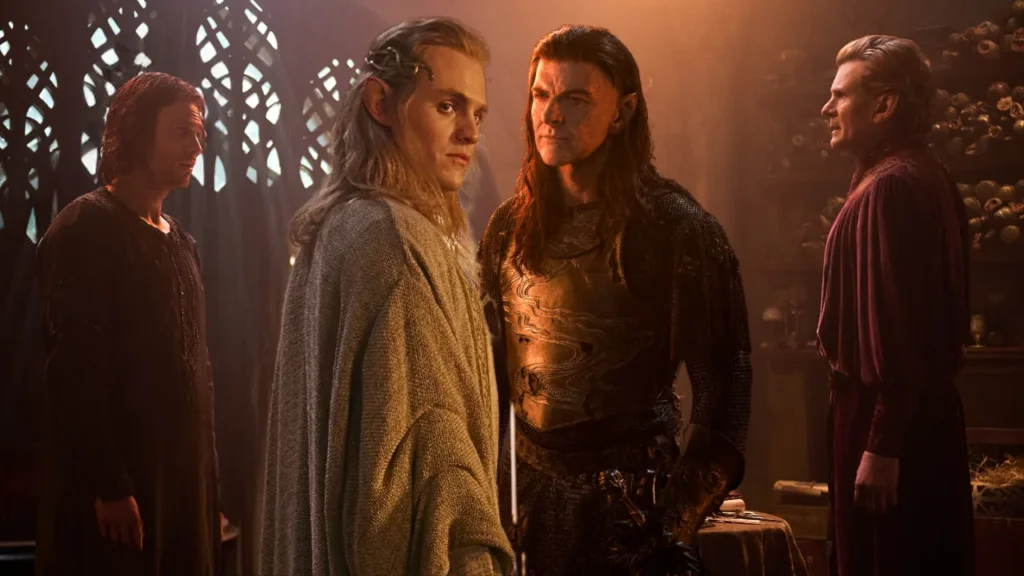The Rings of Power (Season 2): A Grand Return to Middle-earth, Where the Less Tolkien, the Better

After the premiere of the first season of “The Rings of Power”, fierce internet trolls, who pride themselves on being devoted Tolkien acolytes and love attaching themselves to potentially controversial topics, created quite the circus online. Unfortunately, this overshadowed any substantial discussion about the series, which is not without its flaws but certainly doesn’t deserve to be labeled “garbage,” nor does the actress playing Galadriel deserve to be called a “talentless witch.” These are just two mild examples from the sea of insults thrown at the creators, actors, and even fans of the show. It’s strange that someone like Tolkien, an advocate of mercy, goodness, and peace in both his life and writings, could inspire such a wave of hatred. Or perhaps it’s emblematic? Now Amazon has released three episodes of the third season, so I expect it will be similar. Online comments already suggest as much. There’s enough material to latch onto, whether it’s the faithfulness to Tolkien’s prose, its interpretation, or even its aesthetics—giving people the chance to unleash their ethical pettiness on a world that doesn’t need it. Fantasy, on the other hand, requires a modern universe built on beloved motifs, like those from “The Lord of the Rings” and the rest of Tolkien‘s prose. And that’s exactly what you’ll find in the second season of Amazon‘s production.
Though some people can’t see beyond the black elves and their crusade against “leftist ideology,” the biggest surprise and gift to viewers in the final episode of the first season was the revelation of Sauron’s identity. I can now say outright that it’s Halbrand, but the most important aspect isn’t the name, it’s the overall personification. From the very start, the second season builds the identity of the Lord of Mordor in the viewer’s perception, allowing for a confrontation with the Tolkienian image processed by Peter Jackson, and also with the show’s portrayal of the flawless morality of the elves. This begins a classic yet very modern journey through the world of Middle-earth, which is already evident in these three released episodes. The first focuses on Sauron and the elves. The second starts the dwarves’ storyline. The third returns to the people of Númenor. The pieces on the chessboard are taking their places, referencing the fan image instilled in us by pop culture, while mixing in some unexpected moves and revealing new facets of familiar characters. Sauron won’t become the ruler of the darkest realm right away. He faces a long and winding road, as by the end of the first season, only the three elven rings are ready. Where are the seven for the dwarves, the nine for men, and the One? Galadriel won’t immediately realize she isn’t the center of the world, and her rebellion might even be part of a genuine and deeply erotic fascination with Sauron. Gandalf, meanwhile, needs to learn to cast spells before he knows his own name. Viewers will witness the birth of Tolkien’s myths, but this newborn will be raised according to modern standards without crossing any controversial red lines.

The world of the second season of “The Rings of Power”, though it features progressive elements, remains quite “tame” at its core. I regret that the age rating wasn’t raised to 16+, as well as many technical details. Like in the first season, I won’t remember the music, but I can’t say the same for the visuals and special effects. The creators could learn a thing or two about making an intro you don’t want to skip from “The Boys”. Sauron will once again surprise with his multifaceted character and multiracial nature. He is a key to deciphering Middle-earth’s problems, which shouldn’t be focused solely on him as the anti-hero. Sauron is merely the inevitable consequence of the so-called “light side” (comprising humans, elves, and dwarves)—a consequence that, unfortunately, keeps coming back. There’s no simple solution here, and the second season further complicates the characters’ paths, showing viewers the division between good and evil not in the obvious, dualistic way, but as multi-dimensional in a logical sense. Aristotle would likely turn over in his grave several times if he really is buried in Chalkidiki. And hovering above it all, above Gandalf and Sauron, is another nugget—Tom Bombadil—whom Peter Jackson so coldly omitted from his trilogy, though he doesn’t appear yet in the third episode.
We could talk for a long time about the symbolic layers, which I’ll certainly do in the season’s review, and about how much pleasure the cinematography of Elrond and Círdan’s conversations brings when he summons fish from the depths with the red ring Narya. But all of this fades into the background when you appreciate a key shift in the approach to Tolkien’s myths, deepened further by the second season. Namely, it’s their axiological interpretation. Until now, film adaptations of Tolkien’s prose followed a clear template of what was good and what was evil. Now, in “The Rings of Power”, the creators even examine Sauron from an ethical perspective, provoking the viewer to explore the motivations of Middle-earth’s most famous dark sorcerer. Tolkien never managed to do this in his writings—to allow for the possibility that absolute good could turn into radical evil through a single act, a single thought, a single doubt, or a metaphorical drop drawn from the random occurrences of reality. Random, not deterministically conscious. The world presented in “The Rings of Power”, while perhaps overly grandiose, avoids moral templates, freeing itself from monolithic Christian hermeneutics and cultural stereotypes that always constrained Tolkien’s genius. Paradoxically, the less of him there is in the series, the better, because fantasy becomes more liberated, though it still lacks the genre’s typical earthiness—but that’s due to the overly broad age rating.

I repeat so that we don’t forget: the dichotomy of good and evil presented in common moral and religious discourse doesn’t differ much because they stem from the same root. They are merely perceived differently, based on the consequences of certain actions and evaluated as opposites. Both Adar and Arondir planted seeds of new life—alfirin—defying death.

